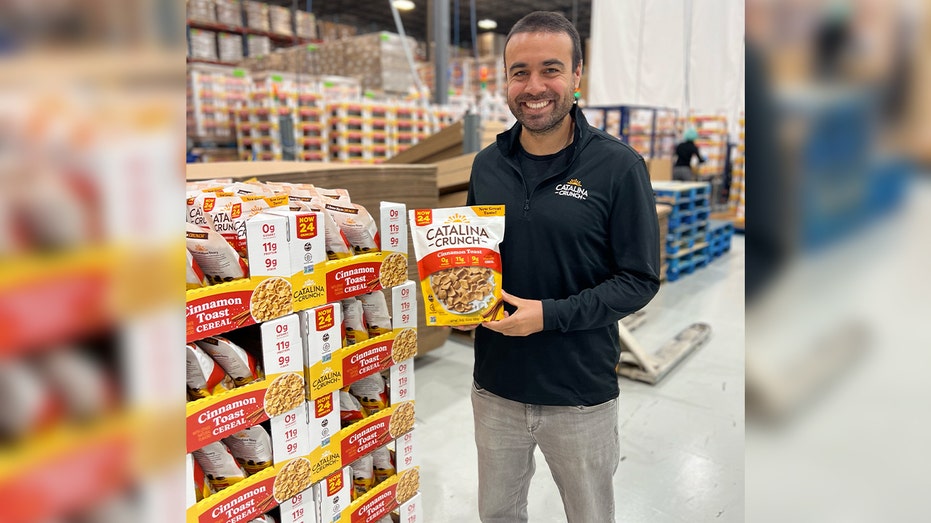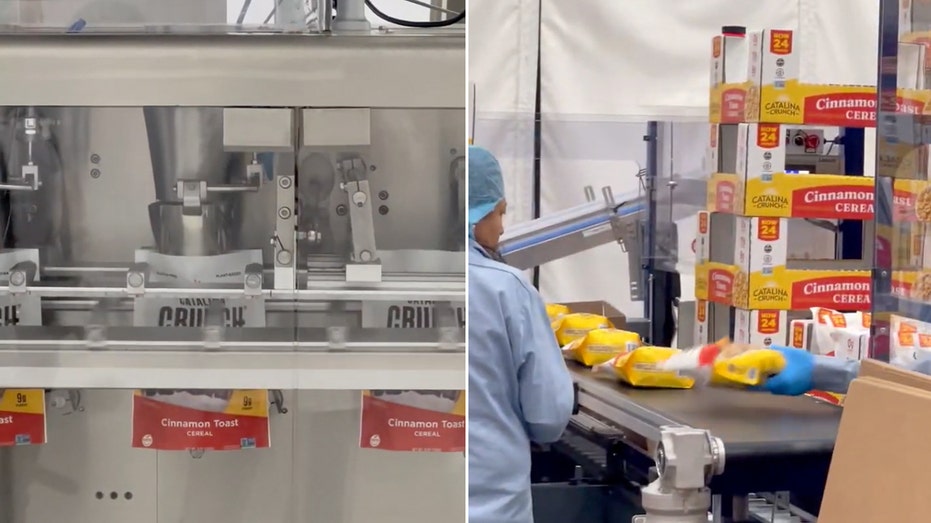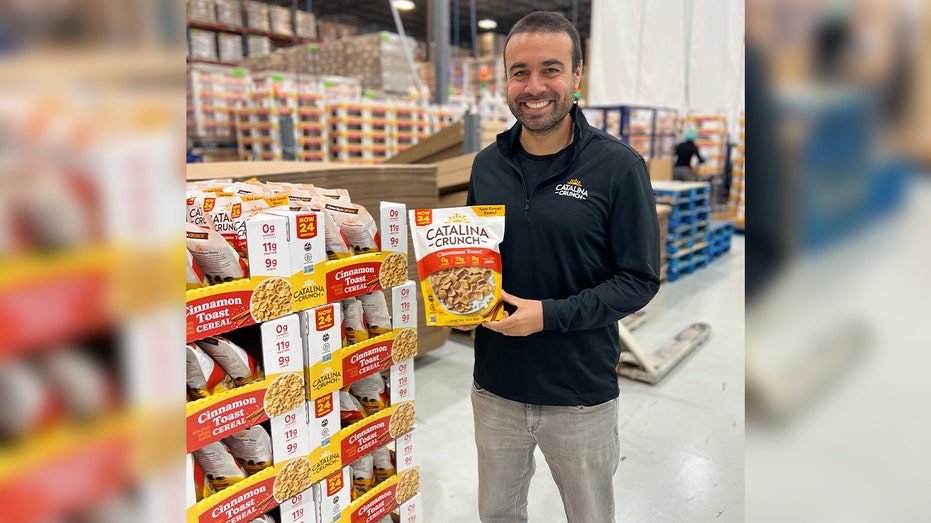Tariffs are making all sorts of goods and services more expensive. Kaliannan explains what it’s like for the food industry.
Tariffs are hitting a wide range of industries, and food is no exception. Catalina Crunch founder Krishna Kaliannan spoke with Fox Business about how his company is working to deliver delicious food without packing in calories.
“We’re all about trying to help folks enjoy and have fun eating delicious foods while also not getting a ton and ton of sugar,” Kaliannan told Fox Business. He said the idea for Catalina Crunch’s iconic Cinnamon Toast cereal came about because Cinnamon Toast Crunch was a childhood favorite of his, but it was “loaded with sugar.”
Catalina Crunch uses a mix of sweeteners in its products, and tariffs have left a bitter taste in their mouths. One of the sweeteners the company uses is monk fruit, which is primarily grown in China’s Guangxi Province. The fruit, which acts as a natural zero-calorie sweetener, has several specific growing requirements, according to Kaliannan.

Catalina Crunch founder Krishna Kaliannan holds a bag of his company’s Cinnamon Toast cereal. (Catalina Crunch)
CHINESE IMPORTS TO US PLUMMET TO LOWEST LEVELS SINCE PANDEMIC AMID TRUMP TARIFFS
“Monk fruit is an interesting ingredient because it is grown in southern China. It requires a hot, humid, subtropical growing environment, typically at high altitude and for long periods of time,” Kaliannan told Fox Business. He explained that there is really no suitable area in the U.S. to grow monk fruit, meaning the harsh taxes on China will increase Catalina Crunch’s costs.
President Donald Trump and Chinese President Xi Jinping hit each other’s countries with massive tariffs. The U.S. began imposing a 145% tariff on Chinese imports, while Beijing put a 125% tariff on American imports.
On May 12, the two countries agreed to pause the trade dispute and slash tariffs for at least 90 days, according to Reuters. This would mean the U.S. bringing its tariffs on Chinese goods down to 30% and China dropping its tariffs on American goods to 10%. However, it’s unclear how long this will last.

President Donald Trump, Chinese President Xi Jinping pictured separately. (Anna Moneymaker/MAURO PIMENTEL/AFP)
JPMORGAN LOWERS RECESSION PROBABILITY AFTER TRUMP’S TARIFF TRUCE WITH CHINA
Kaliannan also touched on the uncertainty of the business environment as tariff battles continue. While Catalina Crunch has attempted to be strategic with its funds in response to the added costs of tariffs, Kaliannan admits that they “can’t tariff-proof it forever.”
“We can’t buy five years’ worth of monk fruit because that will go bad, but we can buy, say, a year’s worth of it. That way, if something—if tariffs stay really high between the U.S. and China, for example—we have time for our culinary team to work on changes to our recipes,” Kaliannan told Fox Business. He also added that the goal would be to keep the “same great taste” without changing the nutritional value of the product.

Catalina Crunch cereal is packaged and shipped. (Catalina Crunch)
GET FOX BUSINESS ON THE GO BY CLICKING HERE
When it comes to whether the consumer will ultimately feel the impact of tariffs, Kaliannan said that it’s important to Catalina Crunch that its products remain affordable.
While the company’s products are relatively more expensive than other options, it also uses higher-quality ingredients in many cases. Ultimately, Kaliannan said that if the company can’t find a way to adapt in a high-tariff environment, such as changing its recipe to keep costs leveled, then prices could go up.
“We’re a nimble company, we are a lean company, we’re doing everything we can to avoid that,” Kaliannan said.

